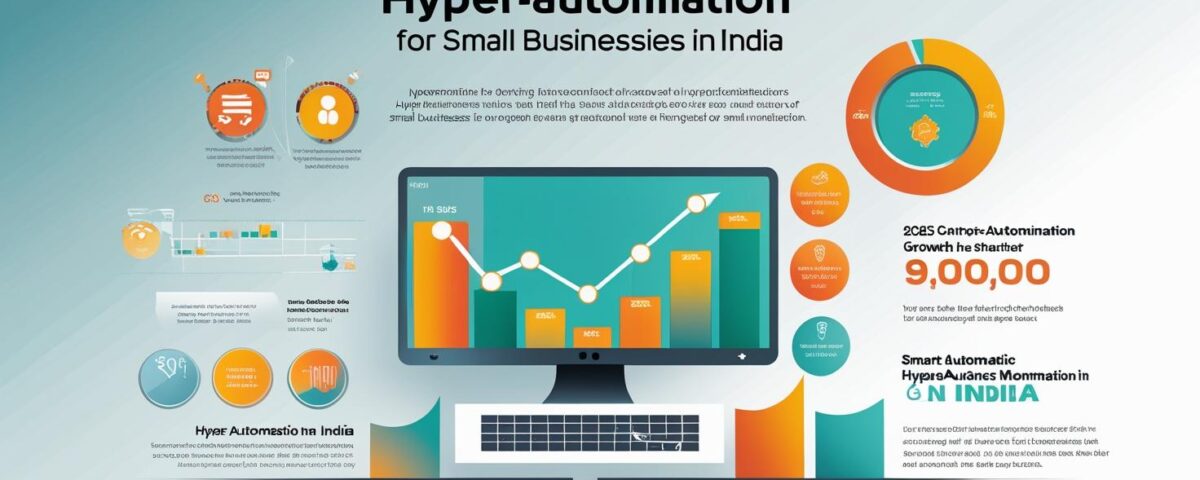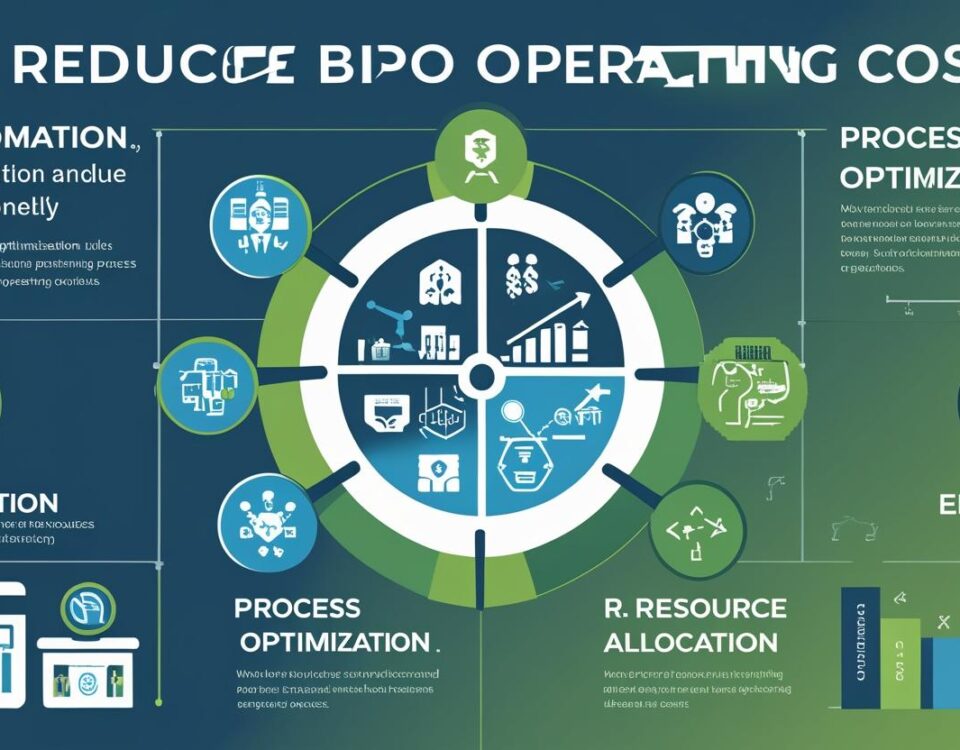Hyperautomation for Small Business: The Complete 2025 Guide to Smart Growth

Hyperautomation for small business
Hyperautomation for Small Business: The Complete 2025 Guide to Smart Growth
Small business owners face an unprecedented challenge: staying competitive while managing limited resources. Traditional automation helped, but hyperautomation for small business represents the next evolution—combining AI, machine learning, and robotic process automation to create intelligent systems that adapt, learn, and optimize themselves.
Unlike basic automation that follows simple rules, hyperautomation creates interconnected workflows that think and respond like your most experienced employee. The result? Small businesses are seeing 20-70% operational cost reductions and 25-40% productivity improvements within the first year.
What is Hyperautomation for Small Business?
Hyperautomation goes beyond traditional automation by combining multiple technologies—artificial intelligence (AI), machine learning (ML), robotic process automation (RPA), and intelligent document processing—into unified systems that can handle complex business workflows end-to-end.
For small businesses, this means transforming from manual, error-prone processes to intelligent systems that:
- Learn from patterns in your business data
- Adapt to changing conditions automatically
- Integrate multiple systems seamlessly
- Handle exceptions without human intervention
This transformation aligns perfectly with modern business operations strategies that optimize efficiency and growth, but takes automation to an entirely new level of intelligence.
Key Differences from Traditional Automation
Traditional Automation:
- Follows pre-programmed rules
- Handles single, repetitive tasks
- Breaks when conditions change
- Requires constant maintenance
Hyperautomation:
- Uses AI to make intelligent decisions
- Manages complete workflows
- Adapts to new situations automatically
- Self-optimizes over time
Why Small Businesses Need Hyperautomation in 2025
The business landscape has fundamentally changed. 92 million jobs are expected to be performed remotely by 2030, customer expectations have skyrocketed, and operational efficiency directly impacts survival. Modern businesses require data-driven decision making for operational excellence that only intelligent systems can provide.
The Current Reality for SMEs
Research shows that 51% of small business IT teams spend significant time on employee onboarding alone, while 47% feel held back by outdated technology. The average entrepreneur wastes 16 hours weekly on repetitive processes—time that could be spent growing the business.
Just as BPO operations focus on cost reduction through proven management strategies, small businesses need systematic approaches to eliminate waste and maximize efficiency.
Market Opportunity
The hyperautomation market is exploding, projected to reach $31.95 billion by 2029 with a compound annual growth rate of 19.80%. Early adopters are gaining significant competitive advantages while the technology is still accessible and affordable.
Core Benefits of Hyperautomation for Small Business
1. Dramatic Cost Reduction
Small businesses implementing hyperautomation report:
- 60-70% reduction in staffing needs for repetitive tasks
- 30% decrease in operational costs (according to Gartner)
- ROI achieved within 12-18 months for most implementations
Real Example: A manufacturing company integrated collaborative robots, achieving a 20% increase in production efficiency and 14-month ROI.
2. Enhanced Customer Experience
Hyperautomation enables:
- 24/7 customer support with AI-powered chatbots
- 20% reduction in customer checkout time
- 30-40% improvement in customer satisfaction scores
- Instant response to customer inquiries
3. Employee Empowerment
Rather than replacing workers, hyperautomation:
- Eliminates repetitive tasks, allowing focus on strategic work
- Increases job satisfaction by removing repetitive duties
- Reduces burnout from manual processes
- Creates opportunities for skill development
This approach mirrors how agentic AI is transforming workforces by augmenting human capabilities rather than replacing them entirely.
Essential Hyperautomation Tools for Small Business
No-Code/Low-Code Platforms
Best for: Quick implementation without technical expertise
- Zapier: Connects apps and automates workflows ($20-$600/month)
- Microsoft Power Automate: Integrates with Microsoft ecosystem ($15/user/month)
- Make: Visual workflow builder ($9-$16/user/month)
AI-Powered Business Management
Best for: Comprehensive business operations
- HubSpot: Marketing and sales automation with AI features
- Salesforce Einstein: CRM with predictive analytics
- QuickBooks AI: Intelligent financial management
Implementation Roadmap for Small Businesses
Phase 1: Assessment and Quick Wins (Month 1-2)
Step 1: Identify Automation Opportunities
Focus on processes that are:
- Highly repetitive and time-consuming
- Error-prone when done manually
- Critical to customer satisfaction
- Currently causing employee frustration
Step 2: Start with Low-Hanging Fruit
Common quick wins include:
- Invoice processing: Reduce from 2 hours to 15 minutes per invoice
- Customer inquiry responses: Automate 70% of routine questions
- Appointment scheduling: Eliminate back-and-forth emails
- Social media posting: Schedule and optimize content automatically
Real-World Success Stories
Case Study 1: Food Packaging Company
Challenge: Manual handling of delicate products causing delays and errors
Solution: High-speed robotic pick-and-place system
Results:
- 25% increase in productivity
- 25% reduction in staffing requirements
- Rapid ROI achievement
Case Study 2: UK Footwear Manufacturer
Challenge: Manual cutting and assembly of shoe materials
Solution: ABB six-axis industrial robots with 210 production programs
Results:
- 20% increase in production efficiency
- Improved product consistency
- 14-month ROI
Measuring Hyperautomation ROI
Accurate ROI measurement is crucial for justifying hyperautomation investments. For detailed calculations and free tools, check out our guide on free online ROI calculator tools for small businesses.
Key Performance Indicators (KPIs)
Efficiency Metrics:
- Processing time reduction: Target 25-50% improvement
- Error rate decrease: Aim for under 1% error rates
- Task completion speed: Monitor cycle time improvements
Cost Metrics:
- Labor cost savings: Track reduced overtime and staffing needs
- Operational expense reduction: Monitor overall cost decreases
- Return on Investment: Calculate payback period (typically 12-18 months)
Customer Impact:
- Response time improvement: Target under 2-hour response times
- Customer satisfaction scores: Aim for 8+ on 10-point scale
- Customer retention rates: Monitor for 90%+ retention
Future of Hyperautomation: Agentic AI Integration
The next evolution in hyperautomation involves agentic AI systems that can plan and execute complex tasks autonomously. These systems represent a significant leap forward from current automation technologies, handling customer conversations, processing payments, and making strategic decisions without human intervention.
Understanding how these advanced systems work is crucial for planning your hyperautomation roadmap. Learn more about how agentic AI is transforming modern workforces and what this means for small business operations.
Getting Started: Your Hyperautomation Action Plan
Week 1-2: Discovery and Planning
- Audit current processes and identify automation opportunities
- Research relevant tools and platforms
- Set realistic budget and timeline expectations
- Build internal support for the initiative
Month 1: Quick Implementation
- Deploy first automation (start with email or scheduling)
- Measure initial results and document improvements
- Train core team on chosen platforms
- Plan next automation based on early success
Month 2-3: Expansion and Integration
- Connect multiple systems for workflow automation
- Implement customer-facing automations
- Add AI-powered analytics and insights
- Optimize existing automations based on data
Conclusion: The Hyperautomation Advantage
Hyperautomation for small business isn’t just about keeping up with technology—it’s about gaining a sustainable competitive advantage in an increasingly complex market. The businesses that embrace these intelligent systems today will be the ones that dominate their markets tomorrow.
The opportunity is clear: While larger corporations struggle with complex legacy systems and bureaucratic change management, small businesses can implement hyperautomation quickly and efficiently. The technology is mature enough to be reliable, yet new enough that early adopters gain significant advantages.
By combining hyperautomation with proven business operations strategies and data-driven decision making, you create a powerful foundation for sustainable growth and operational excellence.
Start small, think big, and act now. Your future self will thank you for taking the first step toward intelligent automation today. The question isn’t whether your small business needs hyperautomation—it’s how quickly you can implement it to outpace your competition.
Ready to transform your business operations? Begin by identifying your most time-consuming manual process and automating it this week. Use our free ROI calculator tools to measure your success. The journey to hyperautomation success starts with a single automated workflow.




